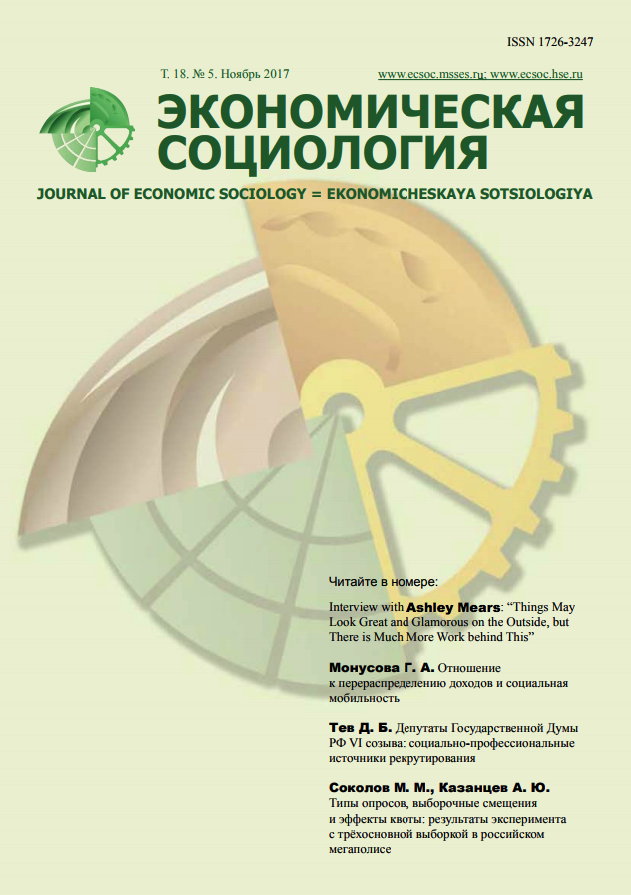Non-Cash Money in Family Budget: Do Financial Management Practices Change?
Abstract
The purpose of the current research was to study the financial management practices of non-cash money in modern Moscow households. Particular attention to non-cash money is determined by the hypothesis that, in the era of an electronic economy, when money becomes more and more abstract and invisible, financial management practices (i.e., the ways people control and distribute their resources) could change [Pahl 1999 a]. The goal of the research was achieved through the deployment of qualitative sociological methods: 20 semi-structured interviews were held with partners living together for more than half a year (married or cohabiting); therefore, 10 households were included in the final sample. The subsequent data analysis led to the following conclusions: The peculiarities of managing non-cash money in a household are determined by reproducing habitual patterns in new formats using new ways, services, and opportunities with which people are provided in an electronic economy. These new formats can be very unique with respect to reproducing household financial allocative systems (provided by Pahl and Vogler), the ways financial power is allocated, and the schemes for accessing partners’ finances and regulations in an electronic economy and in terms of meanings ascribed to the distribution of new money forms.













